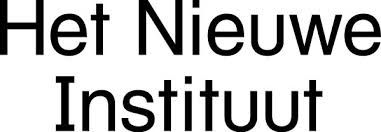Urban commons, such as community gardens and shared neighbourhood spaces, have become more and more popular in recent years, perhaps as a response to the ongoing privatization of public space that many cities are experiencing. But do commons stand a chance against the power of the market? What is known as the ‘tragedy of the commons’, the inevitability of ‘freeloaders’ that take more than their share and disrupt the ecosystem, seems to be lurking around the corner all too often. Could blockchain and its capacity to keep minute records of who used or contributed what be a useful tool to make systems of commoning stronger?
Around the world, people are exploring the capacities of distributed ledgers such as blockchains to support social and environmental ‘good’ through processes of commoning. In this session, we hear from several pilots and prototypes that take resources such as housing and energy out of the market, instead pooling them among a community of users. Blockchains are then put in place in order to make sure that the resource doesn’t run out or is only used by a few.
But blockchains exist in many shapes and sizes, and design choices can have far-reaching consequences. What kind of behavior should be rewarded and how? Which parts of community-life should be logged in the system, and what should remain outside of it in the interest of privacy? What happens to things that don’t fit the mold and will not be represented on the blockchain? How can the community intervene when the algorithm misinterprets a situation? These questions will form a red thread through the conversation, in which we uncover some opportunities and pitfalls of real world ‘blockchain-for-good’ applications.
About this Trilogy
This is the third episode of a series of three livecasts around digital ledger design.
Governments and venture capitalists alike are investing in blockchain technologies, hoping for examples to create robust governance systems or to streamline operations. While many blockchains will remain quite invisible to their end-users, many expect that they will be embedded in fundamental public and private systems such as taxation and ID management, and various everyday transportational and transactional processes.
What will these new technological systems mean for how people live together in cities? This online event series brings together researchers, technologists, designers, and artists to explore the social, political, and environmental impact of blockchain technology. Asking important questions about power, access, and transparency throughout, the events each feature a specific perspective:
- The uses of disorder in the blockchain city searches for the human in the machine, featuring designers and researchers that explore the (im)possibilities of human messiness in optimizing blockchain governance systems.
- Values in the blockchain city looks at proposals from researchers, artists and technologists for blockchains designed with solidarity and fairness as core principles.
- Urban commons in the blockchain city grounds the series with real world examples of blockchain projects focussing on sustainable development and the commons.














